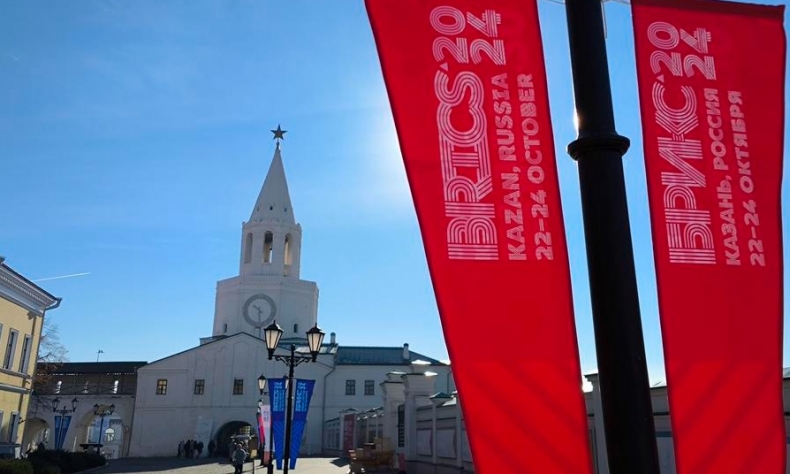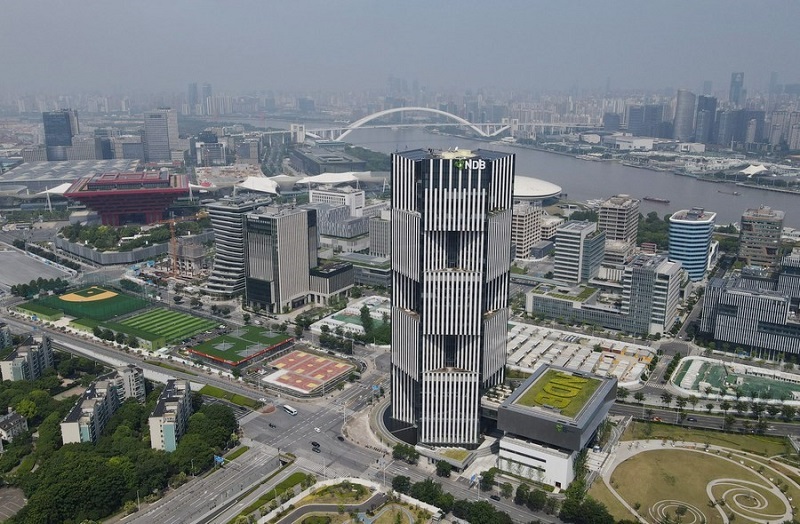The BRICS and the Strengthening of Multipolarity

The BRICS are moving quickly towards building a more inclusive international order, bringing to the fore the desire of the countries of the Global South to build an international order that is truly democratic, inclusive, and multilateral.
This week, the 16th BRICS summit will occur in Kazan, Russia. It will be the first meeting with the heads of state of the countries that have recently joined the group, including Egypt, the United Arab Emirates, Ethiopia, and Iran. Saudi Arabia will send its Minister of Foreign Affairs. The leaders of China, India, and South Africa will attend the summit in Kazan, while Brazilian President Luiz Inacio Lula da Silva will participate via video conference.
The eyes of the world will turn to Kazan. The meeting of essential countries of the Global South is seen as an opportunity for the international order to be genuinely inclusive and for the rules to be followed, without the exceptions we see today. There are several aspects that we need to consider, such as the reactivation of multilateral organizations like the World Trade Organization, the emphasis on the right to economic development, the creation of alternative ways for international payments, and the use of the BRICS’ national currencies to facilitate trade and investment.
At a time when Western powers seek to encourage rivalries, adopt protectionist policies, and dismantle global value chains, the BRICS countries can provide a positive response to multilateralism by enhancing the regulatory capacity of the WTO and encouraging economic integration to make international trade an effective instrument for promoting sustainable development and combating hunger and poverty. The collaboration within the BRICS and the incorporation of the new members into the governance of the New Development Bank (NDB) will be the basis for boosting infrastructure investments in developing countries and reinforcing the progress made so far with the Belt and Road Initiative (BRI). The BRI changed the paradigm of multilateral development banks, which since the 1980s have stopped providing resources aimed at building productive capacities in the Global South. It is essential to consider that tackling the challenges posed by climate change will not be successful without creating a new infrastructure that prioritizes clean and renewable technologies.
International Relations analysts believe that financial and monetary issues will be at the center of the debates since international transactions cannot continue to be subject to the control that the United States has over the system, whether through the dollar or SWIFT, to strike blows against its competitors. The repeated use of the dollar as a political weapon worries countries in the Global South since individuals and institutions may be subject to sanctions and boycotts, as we have seen systematically in recent years.

In this regard, creating mechanisms for settlement and using local currencies for bilateral trade would be a significant gain for the countries of the Global South. It is worth remembering that this movement is already underway with the use of local currencies in trade between India and Russia, Russia and China, and, more recently, with the establishment of a contract between China and Saudi Arabia to trade oil with the Chinese Yuan.
It is worth noting that the movement to find alternatives to the discretionary power of the Washington is reflected in the declining reliance on the U.S. dollar as a reserve for central banks and governments. According to the IMF, as of June 2024, the dollar’s dominance, according to data from the Monetary Composition of Official Foreign Exchange Reserves (COFER), is in continuous gradual decline in the share of foreign reserves allocated to central banks and governments. In 2000, the dollar represented more than 70 percent of reserves. This percentage fell to less than 60 percent in 2024. The reduction in the dollar’s weight was not offset by the increase in the currencies of other allied countries, such as the euro, yen, and pound, but by the increased use of the Chinese Renminbi and a greater demand for gold.
A critical issue to watch at the Kazan summit is how the current BRICS members will position themselves regarding the interest of more than 30 countries in joining the BRICS. Algeria, Azerbaijan, Bahrain, Bangladesh, Belarus, Bolivia, Cuba, Kazakhstan, Myanmar, Nigeria, Pakistan, Senegal, Thailand, Venezuela, and Vietnam, among others, wish to join the group, precisely when the new permanent members are still adjusting to the organization. In my opinion, it is necessary to understand how the current members see the organization’s role on the international scene since this definition is essential to coordinate their actions in international organizations. Without this clear vision of its objectives, the BRICS Group could become a new movement of Non-Aligned countries or the G77 that participated in the WTO trade negotiations, which, despite its scope and sympathy among its members, did not have a clear agenda to guarantee the interests of each country effectively.
Regardless of this issue, we must emphasize that the BRICS are moving quickly towards building a more inclusive international order, bringing to the fore the desire of the countries of the Global South to build an international order that is truly democratic, inclusive, and multilateral. In this regard, it is necessary to create a new development model that will allow most of the world’s population to achieve decent living standards, guaranteeing fundamental rights such as employment, housing, health, food, and security. We hope that the Kazan summit will bring light to a world where the darkness of wars and unilateralism is casting shadow over the planet’s future.
The author is Professor of International Political Economy, São Paulo State University, Brazil.
The article reflects the author’s opinions, and not necessarily the views of China Focus.
 Facebook
Facebook
 Twitter
Twitter
 Linkedin
Linkedin
 Google +
Google +



